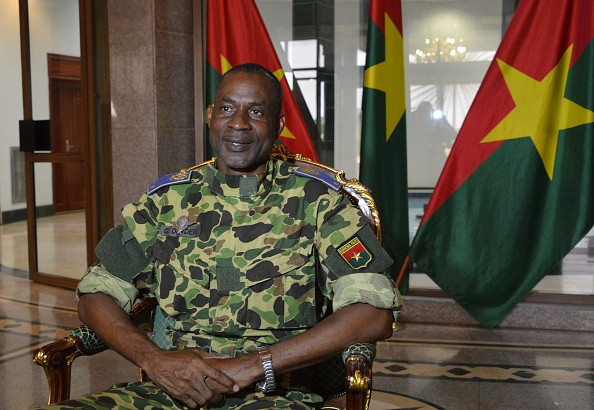Burkina Faso new leader: Who is 'fine strategist' General Gilbert Diendere?

General Gilbert Diendere has been appointed chief of the newly established National Democratic Council (NDC) in Burkina Faso, hours after the presidential guard loyal to the previous leader, Blaise Compaore, carried out a coup d'etat and ousted interim president Michel Kafando.
Believed to have been in born in 1960, Diendere is considered one of the most important military allies of Comparore. He was involved in the 1987 coup that ousted the so-called "Africa's Che Guevara" leader Thomas Sankara - who was assassinated during the coup - organised by Compaore.
Diendere worked as chief of staff and head of the RSP, until Compaore was ousted as he sought re-election. It is believed Diendere accompanied the ousted leader when he fled to Ivory Coast. In an interview with France24, released after being appointed as the country's new leader, he said he had not contacted Compaore either before or after the coup.
According to a report by Le Monde Afrique, Diendere worked as an intermediary during the crisis in Mali and the conflicts in Ivory Coast, Sierra Leone and Liberia. He was also believed to have a "special relationship" with Colonel Muhammar Gaddafi. The newspaper also described him as a shy, calm man known as a fine strategist.
Although Diendere was dismissed as RSP's head by the interim government that took office as Compaore was ousted, analysts believe his relationship with RSP have been close. Some also speculated that the coup staged by the presidential guard could be an attempt to help Compaore repatraiate and take the reins of power.
However, Diendere reassured that election will take place, but not on the scheduled date. "Today it seems to me that the 11 October date is too soon to hold the election," he told AP. "It's not at our level to speak of Compaore's return. We want to stabilize the country and hold elections."
Blaise Compaore ousted
Compaore was driven out in 2014 as he sought to amend the constitution to run in October 2015's presidential election. When the National Assembly was scheduled to hold a discussion on an eventual amendment to the constitution, those who opposed the move stormed the parliament building and looted offices.
As the country descended into chaos, Compaore declared a state of emergency and said he was willing to engage with the opposition to resolve the crisis. However, the army installed an interim government and dissolved the National Assembly. Compaore fled to Ivory Coast, where he is believed to be at the moment.
Burkina Faso
Capital: Ouagadougou
Population: 16.9 million
Official language: French
Main religions: Islam, Christianity, Animism
Largest cities: Ouagadougou , Bobo-Dioulasso,
Koudougou , Ouahigouya , BanforaCurrency: West African Franc
According to some analysts, the coup –carried out weeks before the country was to hold presidential elections – occurred in retaliation to the declaration of a commission, which suggested the disbanding of the presidential guard, known as the Régiment de Sécurité Présidentielle (RSP), amid allegations members had fired on unarmed protesters during 2014 riots.
The presidential guard also said it was unhappy with the ban on candidates who were close to Compaore in the October election.
The coup enraged dozens of people who took to the streets to protest. Between three and 10 people were killed in the capital Ouagadougou when members of the presidential guard fired shots to disperse the protesting crowd and used batons to hit stone-throwing protesters, according to Reuters, which said the number of people killed was three.
© Copyright IBTimes 2025. All rights reserved.




















